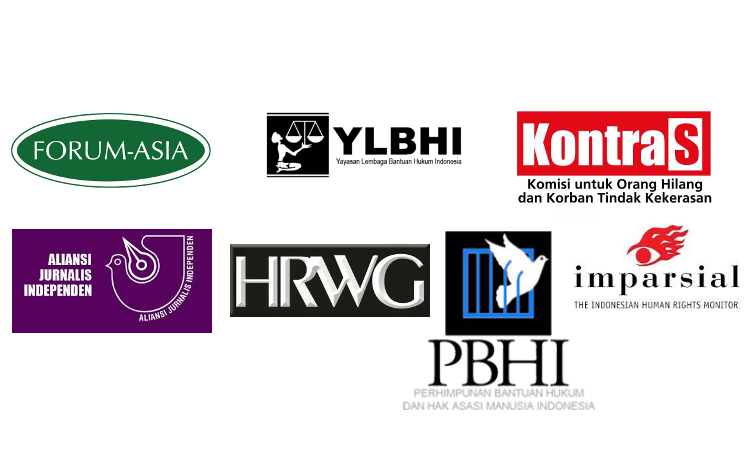
(12 March 2018, Jakarta/Bangkok) – The Asian Forum for Human Rights and Development(FORUM-ASIA), together with its members in Indonesia, the Commission for the Disappeared and Victims of Violence (KontraS), the Human Rights Working Group (HRWG), the Indonesian Legal Aid Foundation (YLBHI), the Indonesian Legal Aid and Human Rights Association (PBHI), the Indonesian Human Rights Monitor (IMPARSIAL), and the Alliance of Independent Journalist Indonesia (AJI), express grave concern over the decision of the House of Representatives of Indonesia to pass the amendmentstoLaw Number 17 Year 2014 onthePeople’s Consultative Assembly (MPR), the House of Representatives (DPR), the Regional House of Representatives (DPRD), and the Regional Representatives Council (DPD), locally known as MD3.[1] It is a serious threat to democracy and the rights to freedom of expression and opinion in the country. The law is expected to come into force on 13 March 2018.
‘Indonesia is facing a politically turbulent time given local elections are to be held this year and presidential elections in 2019. Particularly in that context the rights to freedom of expression and opinion are crucial tools to ensure a free and fair process. Any measures that threaten these fundamental freedoms open the door for various human rights violations to be committed by state institutions through persecution and over-criminalisation,’ says John Samuel, Executive Director of FORUM-ASIA.
Article 122(k) of the amended law, which was passed by the House of Representatives on 12 February 2018, grants the Ethics Committee (Mahkamah Kehormatan Dewan) the authority to take legal actions or other measures against anyone who undermines its honour or that of its members. It should be noted that the reputation of Indonesia’s House of Representatives has been damaged by a high number of corruption scandals involving its members. In a democratic society, criticism of public officials, including Members of Parliament, is at the core of freedom of expression.
For the moment, President Joko Widodo has yet to sign the amendments. According to Article 20, paragraph 2 of the Constitution each new law or amended law will be discussed by Parliament and the President in an attempt to reach an agreement. Once there is such agreement, according to Article 20, paragraph5 of the Indonesian Constitution, the law will automatically come into force, even if it is not signed by the President, within30 days following the approval of the law. Consequently, the amendments to the law will officially come into effect on 13 March 2018.
In addition to the contentious Article122(k) of the MD3 Law, a similarly problematic process is on-going in the amendments to the Indonesian Criminal Code. Article 263(1) of the draft of the revised Criminal Code reintroduces a punitive measure for defamation of the President and the Vice-President.[2]
‘Both articles are susceptible of wide interpretation as long as there are no clear indicators. The MD3 Law and the draft of the revised Criminal Code will target people who attempt to criticise the Government or those who have different opinions, such as journalists, activists, or even researchers,’ says Julius Ibrani of PBHI.
‘Journalists are at the forefront of the right to information and freedom of expression, and both are at stake due to these new provisions,’ adds Muhammad Isnur of YLBHI.
Both articles are counter-productive to promote and protect the rights to freedom of expression and opinion, which are cornerstones of any democracy and are guaranteed in the country’s Constitution, as well as through international human rights standards it has ratified, notably the International Covenant on Civil and Political Rights (ICCPR).
We strongly reject the enactment of the MD3 Law, the on-going attempts to pass a defamation clause in the amendment of the Indonesian Criminal Code, and other attempts to curb the rights to freedom of expression and opinion, and democracy in the country. As the largest democratic country in Southeast Asia, Indonesia is not just critical to the prosperity and stability of the country itself, but of the region. To ensure that the Government of Indonesia upholds the principles of human rights and democracy, and it needs to reject and revoke all laws that have the potential to further oppress fundamental freedoms in the country.
For further information, please contact:
- EA-ASEAN Programme, FORUM-ASIA ([email protected])
- Jane Aileen, International Advocacy Officer of YLBHI ([email protected])
- FatiaMaulidiyanti, staff at International Desk of KontraS ([email protected])
- Julius Ibrani of PBHI ([email protected])
- Muhammad Hafiz, Executive Director of HRWG ([email protected])
- Abdul Manan, Chair of AJI ([email protected])
- Al Araf, Director of IMPARSIAL ([email protected])
[1] MD3 stands for the People’s Consultative Assembly (MPR), the House of Representatives (DPR), the Regional House of Representatives (DPRD), and the Regional Representatives Council (DPD).
[2]https://forum-asia.org/?p=25635.
***
For a PDF version of this statement, click here.




